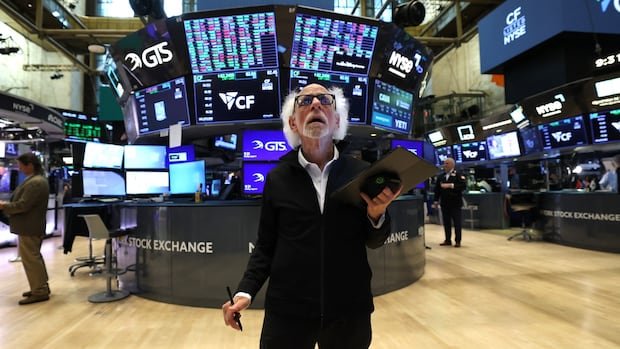Stock markets have seen a surge this week, hitting new record highs driven by select companies specializing in artificial intelligence. Tech giants such as Meta and Nvidia have experienced significant value growth, with anticipation building for the upcoming public offerings of OpenAI, Anthropic, and Perplexity.
Despite the excitement, some investors are expressing concerns about parallels to past market bubbles, particularly referencing the dot-com bubble of the 1990s. Chief economist Torsten Sløk highlighted that the top companies in the S&P 500 are currently more overvalued compared to the 1990s, based on their price-to-earnings ratios.
Analogous to the dot-com era, the emergence of groundbreaking technology is attracting widespread interest and investment, echoing the enthusiasm of the past. However, the cautionary tale of the dot-com bubble serves as a reminder of the risks associated with speculative market behavior.
The current economic landscape is grappling with challenges such as trade wars and fluctuating tariffs, impacting job growth and overall economic stability. Despite these headwinds, major corporations like GM and Ford are navigating tariff-related financial constraints, underscoring the broader market uncertainties.
While similarities to past market bubbles exist, notable distinctions are also evident. Unlike pre-revenue companies of the dot-com era, today’s tech giants like Google, Apple, Meta, and Amazon are profitable, possess global reach, and established customer bases, positioning them favorably for any potential disruptions in the AI sector.
David Sacks, AI advisor to U.S. President Donald Trump, emphasized the ongoing competitive advancements in AI technology, dispelling doomsday narratives and highlighting the collaborative progress within the industry. Companies are rapidly integrating AI into their operations, driving demand for cutting-edge chip technology provided by industry leaders like Nvidia.
Despite fears of a market bubble, the immediate concern revolves around the impact of global trade tensions on financial markets. Companies across various sectors, including tech, are feeling the effects of tariffs, with Apple projecting significant tariff-related costs in the near term.
In navigating market uncertainties, the fundamental question remains: will the future see increased utilization of AI and data? Market trends suggest a resounding “yes,” as investors continue to align their strategies with the growing prominence of AI technologies in various industries.

